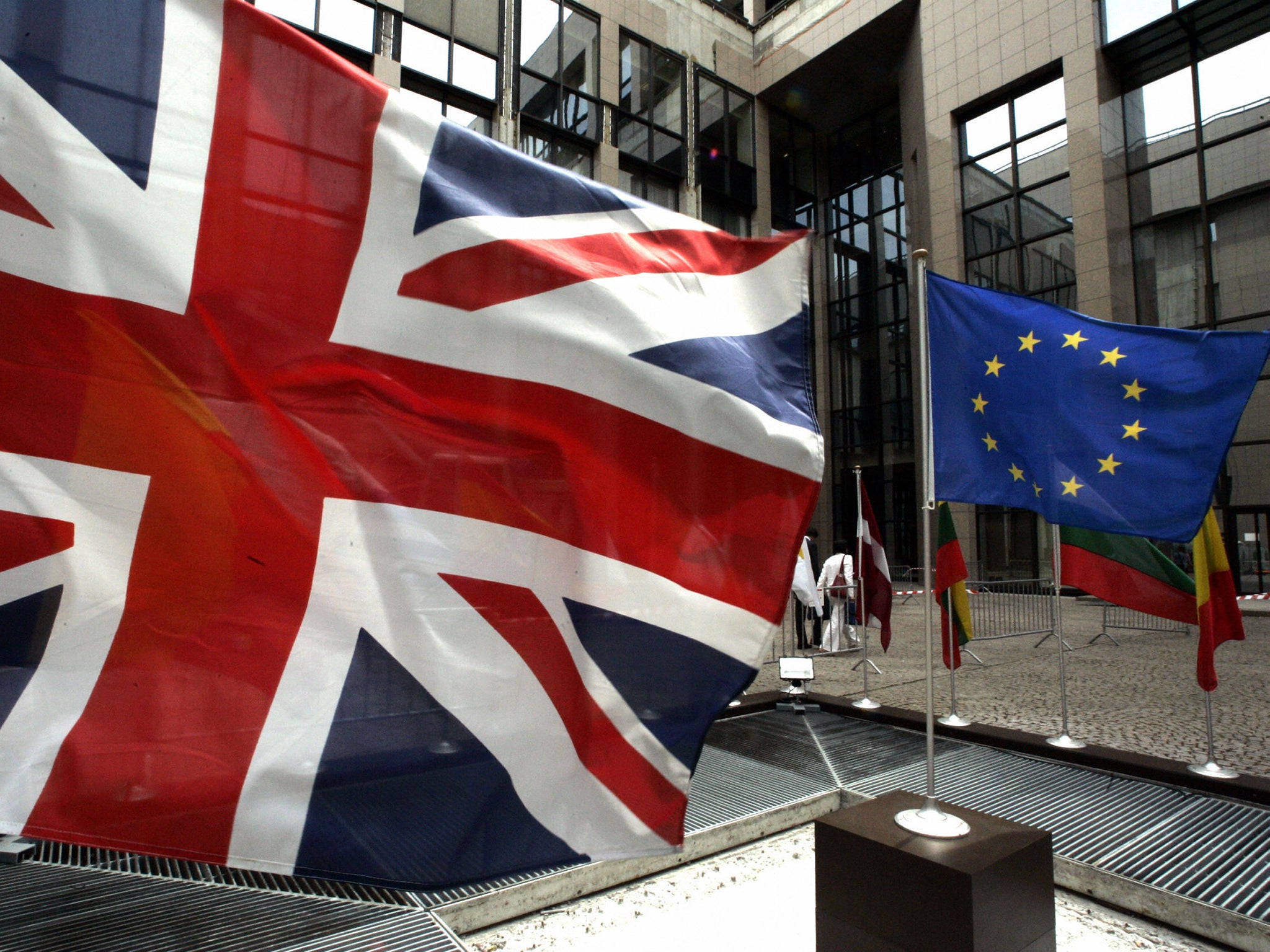Your support helps us to tell the story
From reproductive rights to climate change to Big Tech, The Independent is on the ground when the story is developing. Whether it's investigating the financials of Elon Musk's pro-Trump PAC or producing our latest documentary, 'The A Word', which shines a light on the American women fighting for reproductive rights, we know how important it is to parse out the facts from the messaging.
At such a critical moment in US history, we need reporters on the ground. Your donation allows us to keep sending journalists to speak to both sides of the story.
The Independent is trusted by Americans across the entire political spectrum. And unlike many other quality news outlets, we choose not to lock Americans out of our reporting and analysis with paywalls. We believe quality journalism should be available to everyone, paid for by those who can afford it.
Your support makes all the difference.The margin for error of the campaign to keep Britain in the EU has shrunk dramatically in recent months. Where polls once indicated a sizeable majority in favour of staying in, they are now almost neck and neck. The refugee crisis across the Channel, meanwhile, has won few fans to the cause of an already beleaguered union. And In strategists, who launch their campaign in three days’ time, should by now be in no doubt about the inherent difficulties of getting their message across.
The Out campaign is in possession of a clear and electrifying slogan: Britain will be better off alone. “The benefits of the EU outweigh the costs,” on the opposite side, is unlikely to lead to the high turnout which would – by all accounts – benefit the In camp come polling day.
Examined up close, the anxieties only increase. YouGov polling released last month presented swing voters with a number of key arguments from each side of the debate. Those who started off in the “soft remain” camp were, overwhelmingly, swayed by the message of Out (“Britain will be able to spend money that goes to the EU on better public services” being the most effective lure). On the other hand, those who began largely undecided, but leaning towards Brexit, were pushed further in that direction by the In sales pitch (which included such apparently unobjectionable statements as “Being in the EU gives Britain access to a huge market for our exports, bringing jobs and prosperity”).
So the task is a large one. And those who support the European project – as this newspaper has done since its foundation – will not be filled with confidence by the team thus far assembled by the In camp. None of the back-room staff arrives on a high: Will Straw, the executive director, failed to win a seat as a Labour parliamentary candidate; Ryan Coetzee, strategy director, is fresh from leading the Liberal Democrats into electoral oblivion. The campaign may rue the lack of a serious street fighter, with an envious glance or two already cast at the Conservatives’ Lynton Crosby.
Where the In camp retains the lead, for now at least, is in likely front-of-house leaders. The 1975 referendum provides the example for how such a team might look, including one member from each of the main parties. A combination of Kenneth Clarke, Vince Cable and Alan Johnson, for example, would put the No campaign in the shade, whatever such a triumvirate lacks in youth and diversity. Nigel Farage is simply too divisive, and few of the definitely available Out alternatives appeal. Of course, if Boris Johnson decided to put a shoulder to the Brexit, that would tilt the leadership battle back in favour of the Out camp. But his doing so is by no means a given.
An opportunity presents itself to the In campaign in the form of the youth vote. Under-25s lean to staying in by 64 per cent to 23. Unfortunately, the man best placed to getting out the vote in that demographic, Jeremy Corbyn, has yet to unmix his feelings on EU membership, and is unlikely to play a galvanising role.
A counter-intuitive strategy may help. Rather than ignore immigration, In should focus on it, and paint the Out camp as driven by Ukip’s xenophobia. Such a message would touch the young’s antennae. Besides, those voters who truly loathe immigration will not be won back to the European project: the undecided middle, on the other hand, will probably stand for EU membership over a cause associated with the far right. However it goes about it, the In campaign is now playing catch-up to the Out. It had better get its act together, and fast.

Join our commenting forum
Join thought-provoking conversations, follow other Independent readers and see their replies
Comments